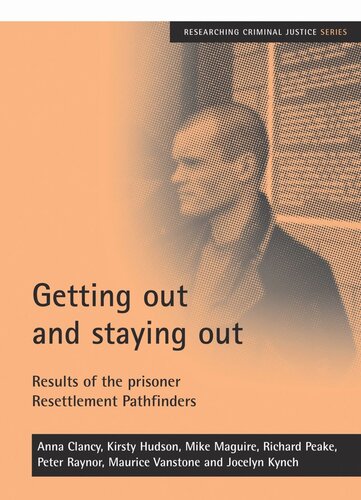

Most ebook files are in PDF format, so you can easily read them using various software such as Foxit Reader or directly on the Google Chrome browser.
Some ebook files are released by publishers in other formats such as .awz, .mobi, .epub, .fb2, etc. You may need to install specific software to read these formats on mobile/PC, such as Calibre.
Please read the tutorial at this link: https://ebookbell.com/faq
We offer FREE conversion to the popular formats you request; however, this may take some time. Therefore, right after payment, please email us, and we will try to provide the service as quickly as possible.
For some exceptional file formats or broken links (if any), please refrain from opening any disputes. Instead, email us first, and we will try to assist within a maximum of 6 hours.
EbookBell Team

5.0
100 reviewsShort-term prisoners have exceptionally high reconviction rates, fuelled by major social problems. Growing recognition of this, and of deficiencies in prison-probation coordination, has accelerated 'resettlement' of ex-prisoners up the penal agenda. The 'Resettlement Pathfinders' tested several new partnership-based approaches. This report evaluates three probation-led projects which combined practical assistance with interventions to improve motivation and capacity to change. Their key feature was the delivery of a cognitive-motivational programme ('FOR - A Change') specially designed for short-termers. The study found this produced significant changes in attitude, as well as greater 'continuity' (voluntary post-release contact between offenders and project staff) than previous approaches. It also found evidence of association between continuity and reduced reconviction. Overall, the findings support resettlement strategies based on fostering and nurturing offenders' motivation to change, facilitating access to services, and 'through the gate' contact with staff or volunteers with whom a relationship has already been built. The research offers findings and insights of practical value to probation and prison officers, as well as staff of other agencies that work with prisoners and ex-prisoners. The report should also be read by penal policy-makers, criminology/criminal justice academics and students, and those engaged in staff training.